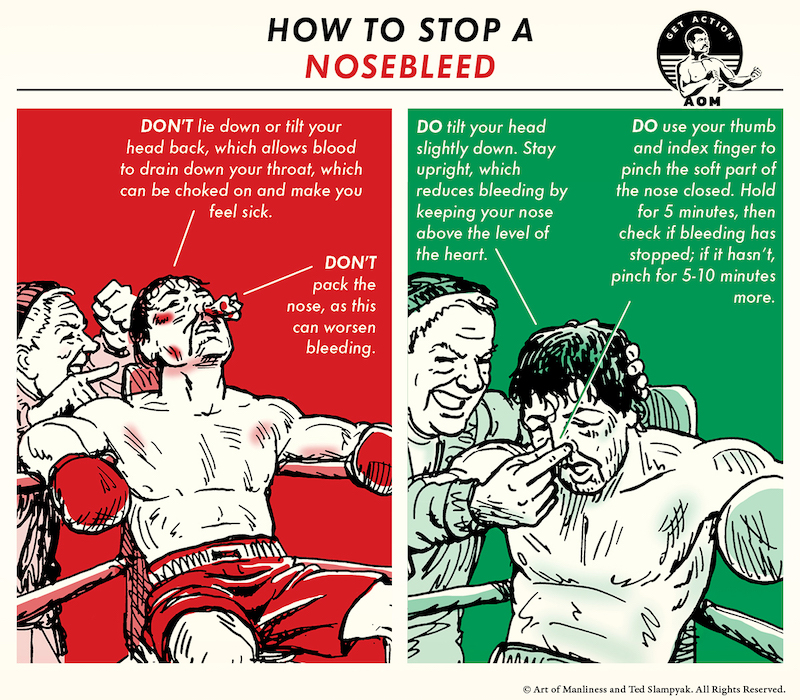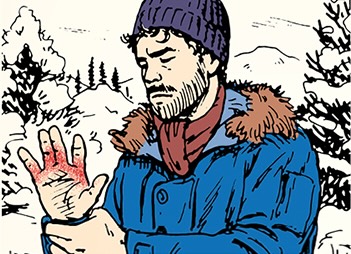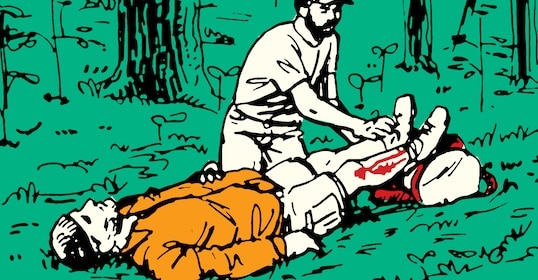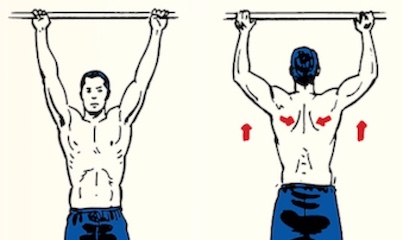
An important part of manhood has always been about having the competence to be effective in the world — having the breadth of skills, the savoir-faire, to handle any situation you find yourself in. With that in mind, each Sunday we’ll be republishing one of the illustrated guides from our archives, so you can hone your manly know-how week by week.
Your snoz is full of blood vessels, and nosebleeds happen when they incur some kind of damage. That damage can come from vigorous nose picking or blowing, outright injury (as in taking a punch to the face), or, very frequently, from exposure to dry air (whether via the outdoor climate or indoor heating). Nosebleeds are particularly common in children ages 2-10, but can occur at any age.
We don’t often see our blood outside of our bodies, so that when a nosebleed occurs, it can feel a little alarming. But unless nosebleeds are extraordinarily heavy, accompanied by other symptoms like high blood pressure and trouble breathing, last longer than a half hour, and/or happen more than twice a week, they’re almost certainly harmless. They’re just messy and annoying, so that you want to stop your own, or your kid’s, as soon as possible, by following the instructions above.
To prevent future nosebleeds, it helps to keep the nasal membranes moist by putting a humidifier in your home/office, using a saline spray 2X a day, and/or applying Vaseline inside the nostrils. More frequently occurring nosebleeds may need to be addressed through cauterization.







